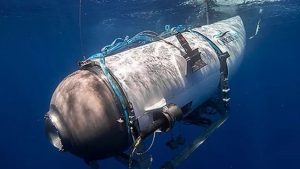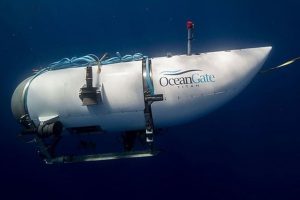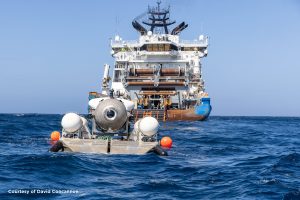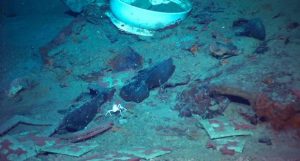In the wake of the devastating implosion of OceanGate’s Titan submersible, questions are arising regarding the potential criminal charges the company may face. The United States Coast Guard’s discovery of debris near the Titanic, identified as belonging to the Titan submersible, has heightened concerns about OceanGate Expeditions’ accountability for the crew members’ tragic deaths.
The USCG described the debris field as consistent with a catastrophic implosion, an event that would have occurred rapidly and left no chance of survival. It was determined that the implosion took place after a loss of pressure in the chamber of the Titan submersible.
In response, OceanGate announced the presumed deaths of the five crew members, leading to a somber and grieving atmosphere among the company’s employees.
Among the crew members were notable individuals, including British businessman Hamish Harding, Pakistani businessman Shahzada Dawood and his son Suleman Dawood, French explorer Paul-Henry Nargeolet, and OceanGate CEO and co-founder Stockton Rush. The loss of these lives has sparked a discussion on the potential legal repercussions for OceanGate.
Also Read: Did Joe Biden administration know about OceanGate Titan submersible’s ‘catastrophic implosion’?
Reports have emerged regarding waivers signed by passengers, such as former passenger David Pogue, before embarking on the submersible. Pogue revealed that the waivers explicitly outlined the risks involved, including the possibility of permanent disability, emotional trauma, or death. The waiver stated that the ship had not been inspected or certified by any government agency.
However, legal experts argue that such waivers may not fully protect OceanGate from criminal action concerning the deaths of the crew members.
Trial attorney and former federal prosecutor Neama Rahmani explained that waivers can only cover simple negligence, not gross negligence. While known risks can be waived, if a company is aware of the danger and fails to adhere to industry standards, neglects security protocols, or ignores warnings, it could be considered evidence of criminal negligence or recklessness. It is important to note that industry customs and standards play a significant role in determining culpability.
However, Rahmani also points out that at this stage, it is challenging to determine the specific charges that OceanGate might face. The tragic loss of OceanGate CEO Stockton Rush, who was among the passengers who perished in the implosion, could complicate potential criminal proceedings. With the absence of key decision-makers within the company, establishing individual accountability becomes more complex.
Also Read: Will human trips to Titanic end after OceanGate Titan submersible tragedy?
The determination of whether OceanGate can escape criminal charges rests on a thorough investigation into their adherence to safety protocols, industry standards, and potential negligence. The evidence collected will be crucial in assessing the extent of the company’s liability. While the legal landscape is uncertain, it is essential to prioritize justice and accountability in honor of the lives lost.
As the investigation into the Titan submersible tragedy continues, it is imperative to remember the human cost and the profound impact on the families and loved ones of the crew members.





